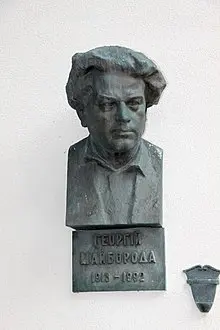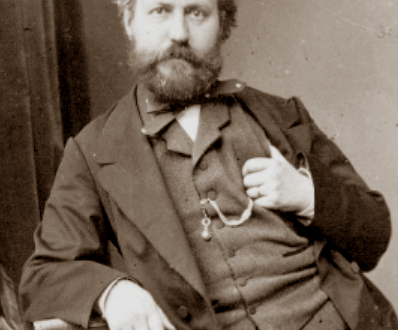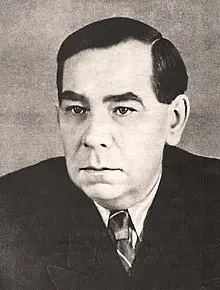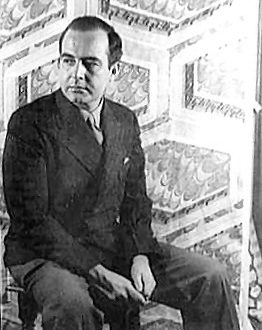
George Illarionovich Maiboroda (Heorhiy Maiboroda).
Contents
Heorhiy Maiboroda
The work of the prominent Soviet Ukrainian composer Georgy Maiboroda is distinguished by genre diversity. He owns operas and symphonies, symphonic poems and cantatas, choirs, songs, romances. As an artist Mayboroda was formed under the fruitful influence of the traditions of Russian and Ukrainian musical classics. The main feature of his work is an interest in national history, the life of the Ukrainian people. This explains the choice of plots, which he often draws from the works of the classics of Ukrainian literature – T. Shevchenko and I. Franko.
The biography of Georgy Illarionovich Mayboroda is typical for many Soviet artists. He was born on December 1 (new style), 1913, in the village of Pelekhovshchina, Gradyzhsky district, Poltava province. As a child, he was fond of playing folk instruments. The youth of the future composer fell on the years of the first five-year plans. After graduating from the Kremenchug Industrial College, in 1932 he left for Dneprostroy, where for several years he participated in amateur musical performances, sang in the Dneprostroy chapel. There are also the first attempts of independent creativity. In 1935-1936 he studied at a music school, then entered the Kyiv Conservatory (composition class of Prof. L. Revutsky). The end of the conservatory coincided with the beginning of the Great Patriotic War. The young composer, with weapons in his hands, defended his homeland and only after the victory was able to return to creativity. From 1945 to 1948 Mayboroda was a post-graduate student and later a teacher at the Kyiv Conservatory. Even in his student years, he wrote the symphonic poem “Lileya”, dedicated to the 125th anniversary of the birth of T. Shevchenko, the First Symphony. Now he writes the cantata “Friendship of Peoples” (1946), the Hutsul Rhapsody. Then comes the Second, “Spring” symphony, the opera “Milan” (1955), the vocal-symphonic poem “The Cossacks” to the words of A. Zabashta (1954), the symphonic suite “King Lear” (1956), many songs, choirs. One of the composer’s significant works is the opera Arsenal.
M. Druskin
Compositions:
operas – Milana (1957, Ukrainian theater of opera and ballet), Arsenal (1960, ibid; State Pr. Ukrainian SSR named after T. G. Shevchenko, 1964), Taras Shevchenko (own lib., 1964, ibid. same), Yaroslav the Wise (1975, ibid.); for soloists, choir and orchestra. – Cantata Friendship of Peoples (1948), wok.-symphony. poem Zaporozhye (1954); for orc. – 3 symphonies (1940, 1952, 1976), symphony. poems: Lileya (1939, based on T. G. Shevchenko), Stonebreakers (Kamenyari, based on I. Franko, 1941), Hutsul Rhapsody (1949, 2nd edition 1952), suite from music to the tragedy by W. Shakespeare “King Lear (1959); Concerto for Voice and Orc. (1969); choirs (to lyrics by V. Sosyura and M. Rylsky), romances, songs, arr. nar. songs, music for dramas. plays, films and radio shows; editing and orchestration (together with L. N. Revutsky) of concertos for piano. and for skr. BC Kosenko.





